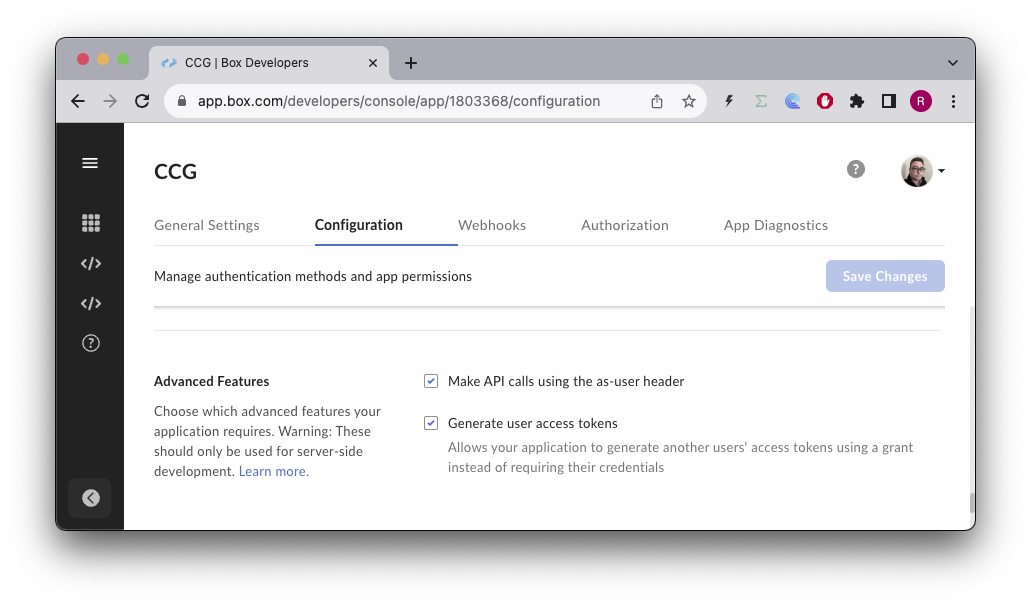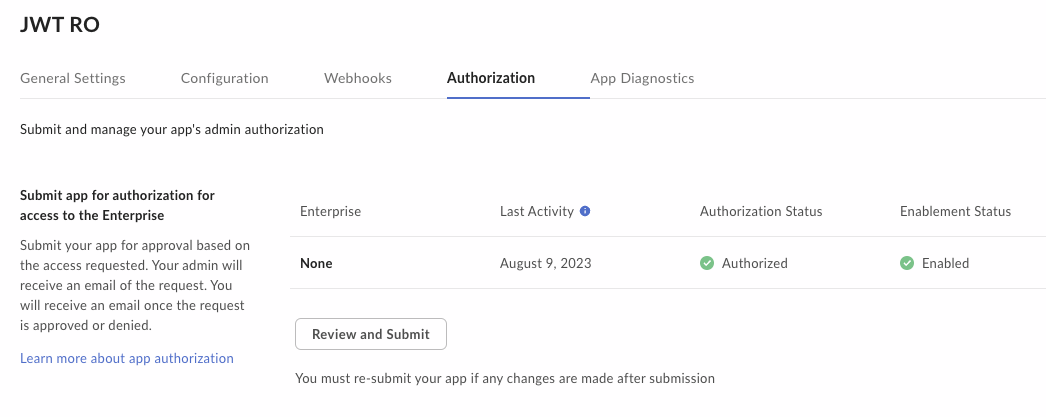Hi Yane (@nobuhiro_yane )
For the service account it works the same way. For example my CCG app config is:
(I have all permissions selected)
Then you need to create a CCGAuth object:
def ccg_from_enterprise_config(config: AppConfig) -> CCGAuth:
"""
Returns a boxsdk CCGAuth object
from the configuration file
"""
return CCGAuth(
client_id=config.client_id,
client_secret=config.client_secret,
enterprise_id=config.box_subject_id,
)
The AppConfig you see above just reads from a .env file, you’ll need the client id, client secret, and the enterprise id (in the env file represented as box_subject_id).
Then I have a method that returns a client:
def get_ccg_enterprise_client(config: AppConfig, as_user_id: str = None) -> Client:
"""Returns a boxsdk Client object"""
auth = ccg_from_enterprise_config(config)
client = Client(auth)
if as_user_id:
as_user = client.user(user_id=as_user_id).get()
return client.as_user(as_user)
return client
Finally the main.py looks like this:
import logging
from app.config import AppConfig
from app.box_client import get_ccg_enterprise_client
logging.basicConfig(level=logging.INFO)
logging.getLogger("boxsdk").setLevel(logging.CRITICAL)
conf = AppConfig()
def main():
"""
Simple script to demonstrate how to use the Box SDK
with CCG authentication
"""
client = get_ccg_enterprise_client(conf)
user = client.user().get()
print(f"Logged in as {user.name}")
client_as_user = get_ccg_enterprise_client(conf, as_user_id="18622116055")
as_user = client_as_user.user().get()
print(f"Acting as {as_user.name}")
if __name__ == "__main__":
main()
and the result is:
Logged in as CCG
Acting as Rui Barbosa
Let us know if this helps
Cheers






